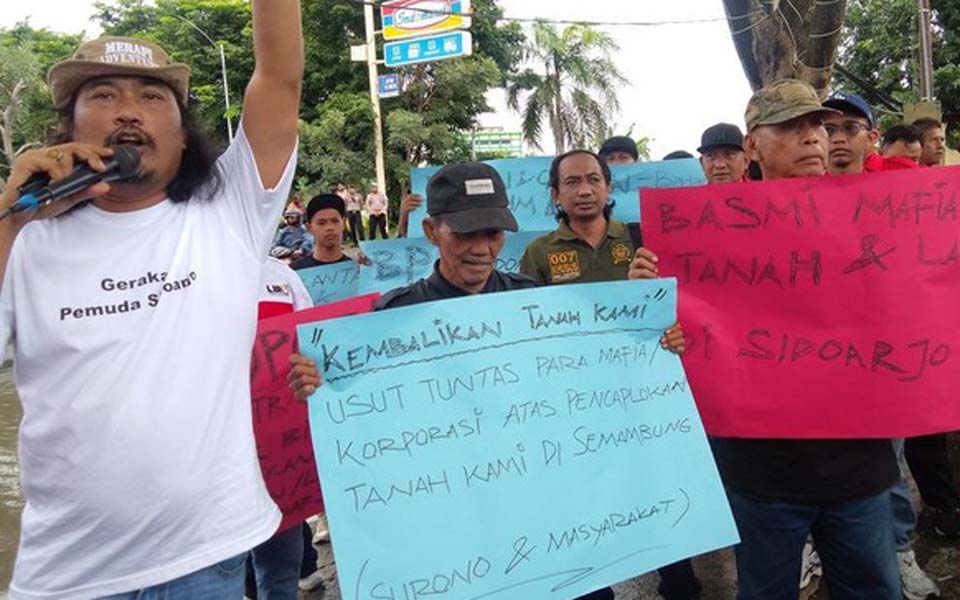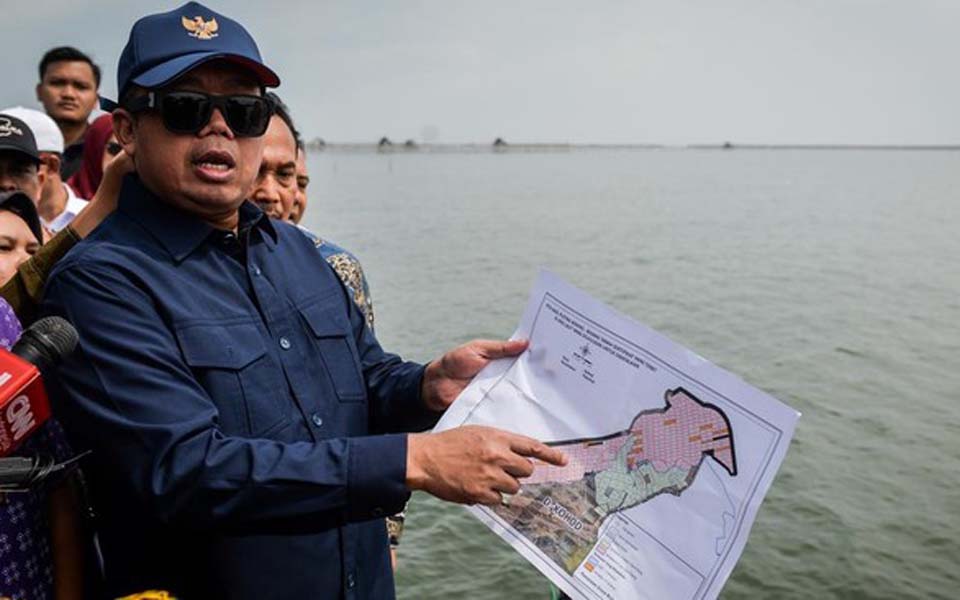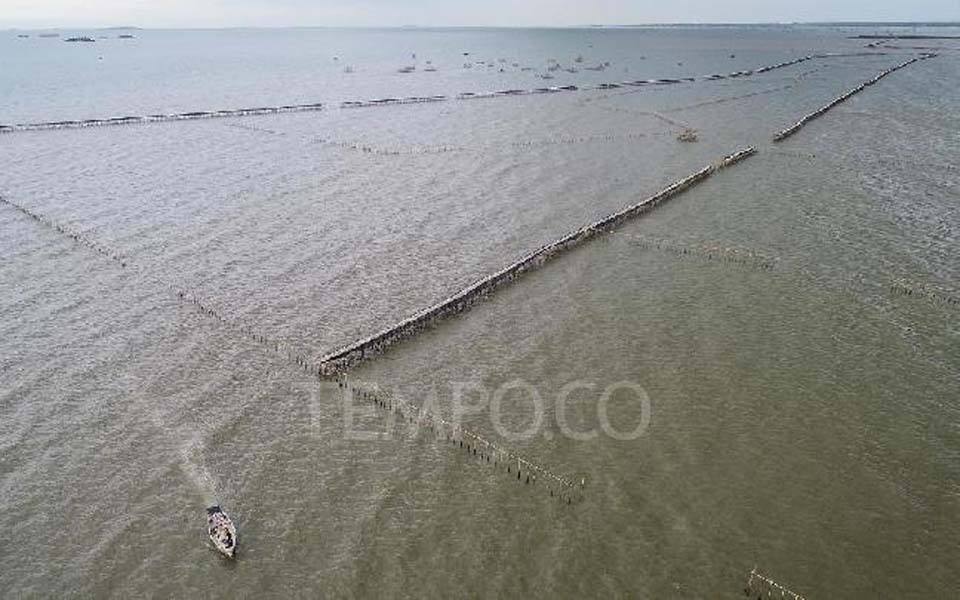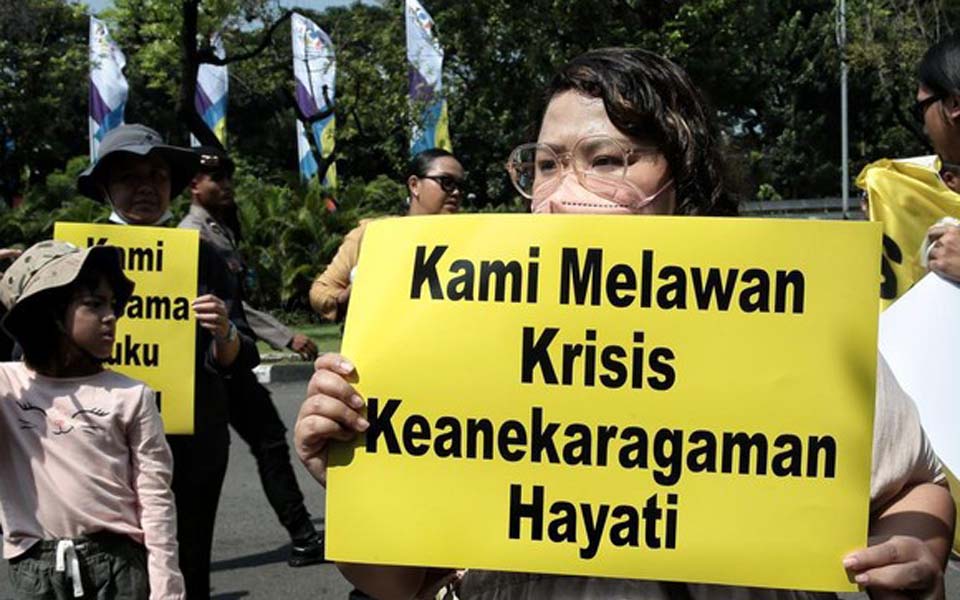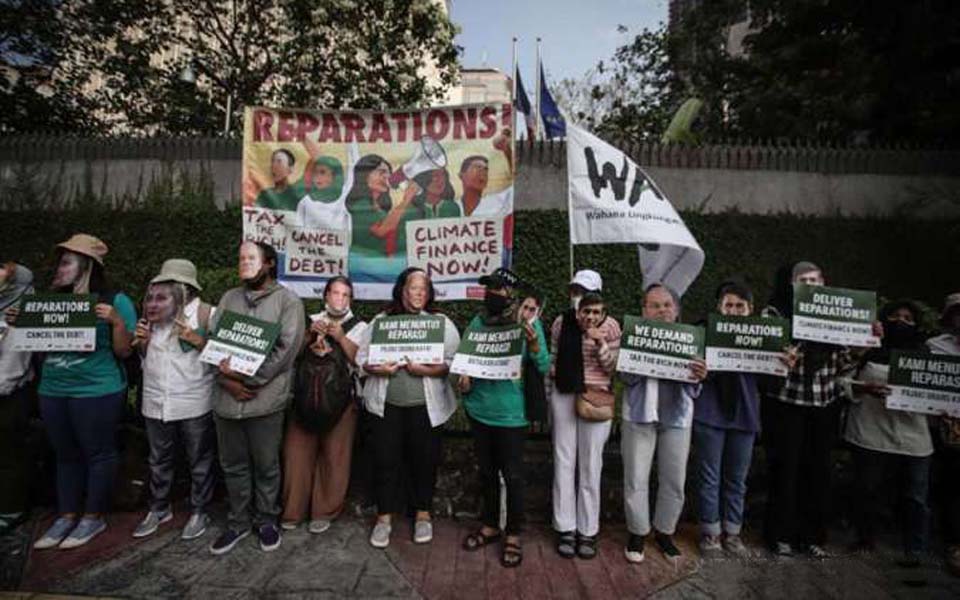Nusa Dua, Bali – Activists from the Civil Society Forum or CSF are calling for a fairer world in order to overcome the impact of climate change. Without resolving global injustices first, climate change will only increase the burden on billions of poor around the world.
This demand was raised during a meeting of non-government organisations (NGOs) on Saturday and Sunday (December 1-2) in the lead up to the Climate Change Conference that is to be held in Nusa Dua, Bali. The meeting, which was initiated by the Indonesian Forum for the Environment (Walhi), was attended by some 60 NGOs and some 100 people form local support groups.
Walhi Executive Director Chalid Muhammad said that up until now the advanced countries in the North have been applying double standards in their models of global development, that is on the one side they promote the issue of preserving the environment, but on the other hand they insist on maintaining the supply of cheep raw materials that destroy important social and ecological sectors in the Southern countries.
For the Southern countries, this model of global development further contributes to poverty. The people in the South are trapped in a cycle of social and ecological crisis, environmental damage, social disintegration and the loss of access to their sources of livelihood. Hunger, malnutrition, natural disasters and poverty are the daily fare for the people of the South, while the governments of the Southern countries are busy filling the consumption needs of the Northern countries and paying off foreign debt, while providing their citizens with the crumbs of development.
According to Chalid, the patterns of energy consumption by the northern countries that are wasteful and polluting, is historically the primary cause of global warming.
Carbon trading
In an Indonesian Civil Society Position Paper written by the CSF, it said that efforts to overcome the impact of global warming have been led astray by economic and political interests that fail to address the reality being suffered by the world’s citizens. In spite of being put forward voluntarily though bilateral agreements, the solutions being offered in schemes by the United Nations Framework Convention on Climate Change (UNFCCC), are still essentially within a business framework.
These negotiators are convinced that solutions in the form of technology transfer and rearranging forest areas will be able to address global warming and climate change. Moreover they believe the market is the primary mechanism to take action to overcome climate change. “This demonstrates that the signals of climate change have not been enough to change the views of world leaders in managing the planet,” said Chalid.
During yesterdays meeting, which was attended by at least eight international NGOs including Oil Watch, Friends of the Earth International and Jubilee 2000, intervention models were formulated to counter-balance the mainstream models that focus on carbon trading schemes.
Subsidised by local people
Hendri Saparini, an economic observer from the Advisory Group in Economics, Industry and Trade (Econit, a private think tank) said that the carbon-trading scheme represents a subsidy forced on local people to maintain the lifestyles of those in the advanced countries.
“These negotiations appear to only look at the value of carbon, which on paper is very high, but don’t consider the fate of local people who will come under more pressure because of these mechanisms”, he said.
Saparini said that limiting energy use for development in the developing countries is also a part of this scheme as a whole. “We are forced to undertake energy conversion and all sorts of other things to protect consumption in the advanced countries”, he added. (AIK/MH/OKI/ANS/AYS/ONG)
[Translation by James Balowski. Last two paragraphs on security at the Bali conference and President Susilo Bambang Yudhoyono attendance omitted.]







